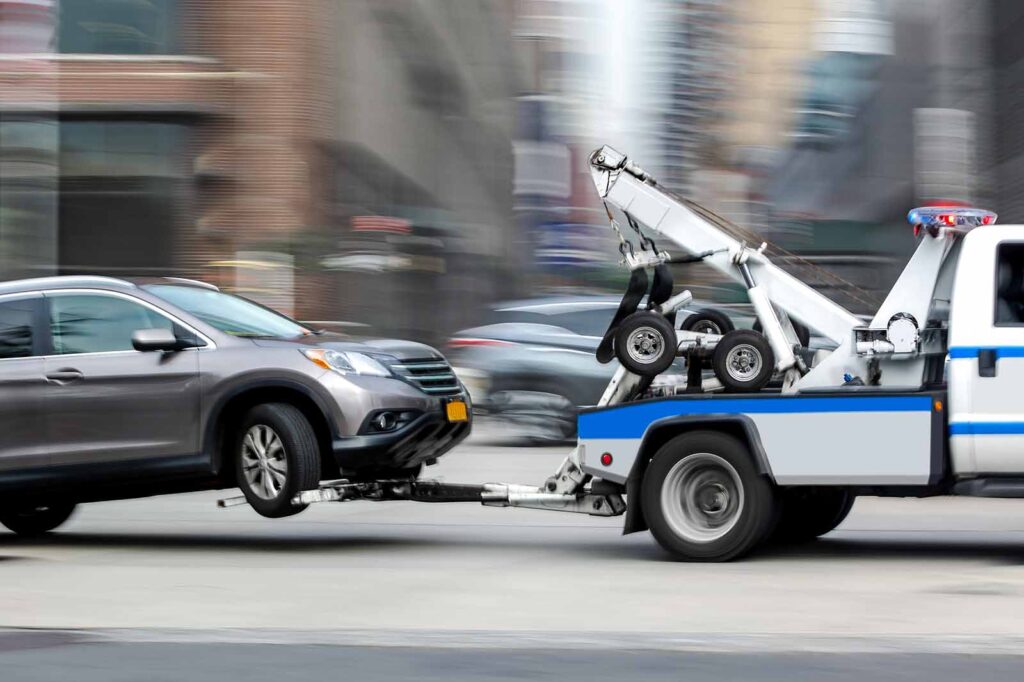Vehicle Towing
Vehicle Towing Services
Vehicle towing services provide critical assistance to drivers in various situations where a vehicle needs to be transported from one location to another. These services are essential for dealing with emergencies, accidents, breakdowns, illegal parking, or when moving vehicles across distances. Here’s a comprehensive guide covering the various aspects of vehicle towing services:

Types of Towing Services
a. Emergency Towing
Emergency towing is required when a vehicle becomes inoperable due to accidents, breakdowns, or other emergencies. Services are often available 24/7 to ensure assistance is available whenever needed.
b. Accident Towing
This service is used when vehicles are involved in a collision and need to be moved from the accident site. Tow trucks can clear the scene quickly, preventing further traffic disruption or secondary accidents.
c. Breakdown Towing
When vehicles experience mechanical failures such as engine problems, transmission issues, flat tires, or dead batteries, towing services transport the vehicle to the nearest repair shop or desired location.
d. Illegal Parking Towing
Vehicles parked illegally or in restricted areas are often towed by city authorities or private property owners to maintain order and accessibility.
e. Impound Towing
Law enforcement agencies use towing services to impound vehicles involved in criminal activities, those with outstanding fines, or abandoned cars.
f. Long-Distance Towing
Long-distance towing is used to transport vehicles over extended distances, often used for car relocations, moves, or transporting high-value or classic cars.
g. Motorcycle Towing
Specialized towing services are available for motorcycles, which require different equipment and handling than standard vehicles to avoid damage.
h. Heavy-Duty Towing
This service caters to larger vehicles such as trucks, buses, RVs, and commercial vehicles. Heavy-duty tow trucks have enhanced capabilities to handle the weight and size of such vehicles.
i. Flatbed Towing
Flatbed towing involves lifting the entire vehicle onto a flatbed truck. This is one of the safest towing methods, often used for damaged, high-value, or four-wheel-drive vehicles.
j. Wheel-Lift Towing
Wheel-lift towing involves lifting the front or rear wheels of a vehicle, allowing it to be towed with the other wheels on the ground. It is faster and more efficient for short distances.
k. Winch and Recovery Services
These services are used to recover vehicles stuck in ditches, mud, sand, or other hard-to-reach areas. The tow truck uses a winch to pull the vehicle out safely.
Types of Tow Trucks
a. Flatbed Tow Trucks
These trucks have a long, flat platform where vehicles are loaded entirely off the ground. They are versatile and can handle a variety of vehicles, from cars to heavy machinery.
b. Hook and Chain Tow Trucks
This type uses chains to lift the vehicle’s front or rear end, dragging the other end on the ground. It’s less common today due to the potential for vehicle damage.
c. Wheel-Lift Tow Trucks
Using a metal yoke, these trucks lift either the front or rear of the vehicle off the ground, providing a more secure and less damaging towing option compared to hook and chain.
d. Integrated Tow Trucks
Integrated trucks are heavy-duty trucks used mainly for impounding vehicles and large trucks. They combine wheel-lift and boom functions, making them versatile.
e. Boom Trucks
Boom trucks have adjustable arms (booms) to recover vehicles stuck in ditches, embankments, or other difficult locations.
Factors Affecting Towing Costs
- Distance: Longer distances cost more due to increased fuel and time requirements.
- Vehicle Type: Larger or heavier vehicles require special tow trucks, increasing costs.
- Time of Day: Towing services may charge extra for nighttime, weekend, or holiday services.
- Location: Urban areas may have higher rates due to demand, while rural areas might charge for additional travel time.
- Type of Service: Emergency towing, winching, or accident recovery may incur additional fees.
Choosing a Towing Service
- Reputation: Look for companies with good reviews and ratings.
- Response Time: Quick response times are crucial, especially in emergencies.
- Equipment: Ensure the company has the right equipment for your specific towing needs.
- Pricing Transparency: Avoid companies with hidden fees by getting a clear quote upfront.
- Insurance and Licensing: Always choose licensed and insured companies to ensure professional service and protect your vehicle.
Additional Services
- Roadside Assistance: Many towing companies offer additional services like jump-starts, tire changes, lockout services, and fuel delivery.
- Storage Facilities: Some towing companies provide secure storage facilities for vehicles after towing.
- Vehicle Transport: For non-emergency situations, companies offer scheduled vehicle transport services for relocations.
Safety and Legal Considerations
- Right to Tow: Make sure the towing company has the legal right to tow a vehicle, especially in cases involving private property or repossession.
- Vehicle Damage: Ensure the company has policies in place for damages during towing, and check if your insurance covers towing-related damages.
- Tow Authorization: In some areas, permission from law enforcement may be required before a tow can occur, especially after an accident.
How to Prepare Your Vehicle for Towing
- Remove Valuables: Ensure personal belongings are removed from the vehicle.
- Disable the Alarm: To avoid unnecessary noise or complications during towing.
- Provide Keys: The tow operator will need access to the vehicle to maneuver and secure it properly.
Common Myths About Towing
- “Flatbed towing is the only safe method.” While flatbed towing is safe, other methods like wheel-lift are also reliable for specific situations.
- “Towing damages vehicles.” Properly executed towing by professional services should not cause damage.
- “Only broken-down vehicles get towed.” Towing services cover a wide range of needs, from illegal parking enforcement to long-distance transport.
Conclusion
Vehicle towing services are an essential part of roadside assistance and vehicle management. Understanding the types of services, tow trucks, cost factors, and best practices can help you make informed decisions when in need of towing. Whether dealing with an emergency or planning vehicle transport, choosing the right towing service ensures safety, efficiency, and peace of mind.
If you need more specific information or assistance related to vehicle towing services, let me know!
